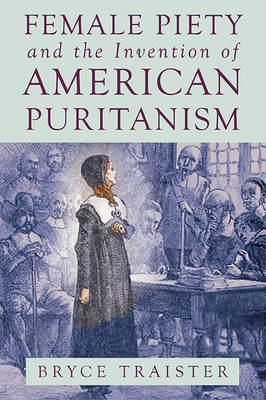
- Afhalen na 1 uur in een winkel met voorraad
- Gratis thuislevering in België vanaf € 30
- Ruim aanbod met 7 miljoen producten
- Afhalen na 1 uur in een winkel met voorraad
- Gratis thuislevering in België vanaf € 30
- Ruim aanbod met 7 miljoen producten
Zoeken
Female Piety and the Invention of American Puritanism
Bryce Traister
€ 104,95
+ 209 punten
Uitvoering
Omschrijving
Female Piety and the Invention of American Puritanism reconsiders the standard critical view that women's religious experiences were either silent consent or hostile response to mainstream Puritan institutions. In this groundbreaking new approach to American Puritanism, Bryce Traister asks how gendered understandings of authentic religious experience contributed to the development of seventeenth-century religious culture and to the "post-religious" historiography of Puritanism in secular modernity. He argues that women were neither marginal nor hostile to the theological and cultural ambitions of seventeenth-century New England religious culture and, indeed, that radicalized female piety was in certain key respects the driving force of New England Puritan culture. Uncovering the feminine interiority of New England Protestantism, Female Piety and the Invention of American Puritanism positions itself against prevalent historical arguments about the rise of secularism in the modern West. Traister demonstrates that female spirituality became a principal vehicle through which Puritan identity became both absorbed within and foundational for pre-national secular culture. Engaging broadly with debates about religion and secularization, national origins and transnational unsettlements, and gender and cultural authority, this is a foundational reconsideration both of American Puritanism itself and of "American Puritanism" as it has been understood in relation to secular modernity.
Specificaties
Betrokkenen
- Auteur(s):
- Uitgeverij:
Inhoud
- Aantal bladzijden:
- 248
- Taal:
- Engels
- Reeks:
Eigenschappen
- Productcode (EAN):
- 9780814212981
- Verschijningsdatum:
- 15/01/2016
- Uitvoering:
- Hardcover
- Formaat:
- Genaaid
- Afmetingen:
- 157 mm x 234 mm
- Gewicht:
- 453 g

Alleen bij Standaard Boekhandel
+ 209 punten op je klantenkaart van Standaard Boekhandel
Beoordelingen
We publiceren alleen reviews die voldoen aan de voorwaarden voor reviews. Bekijk onze voorwaarden voor reviews.











